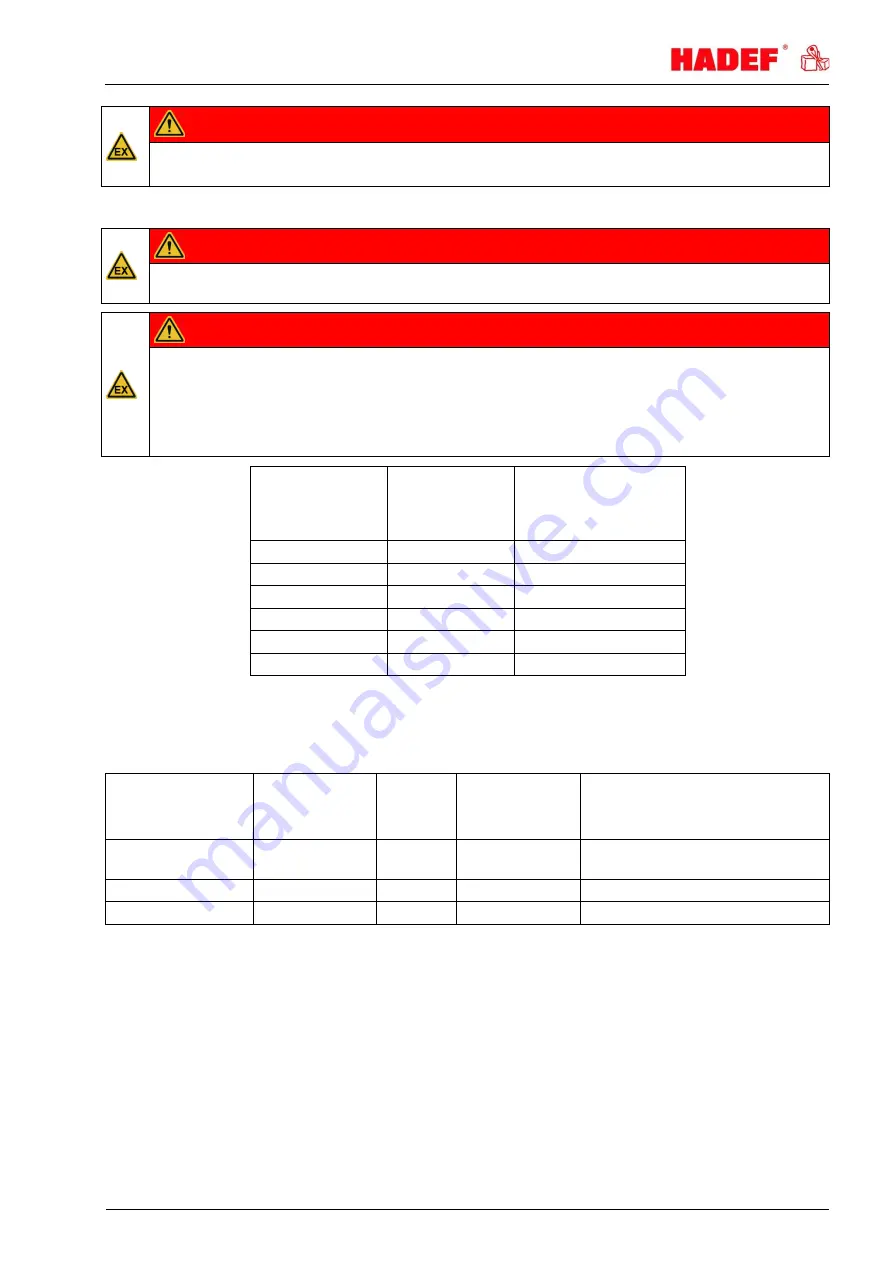
5.52.190A.01.01.04
9
DANGER!
The classification for the device can be found on the EX-type plate on the unit.
The device must only be used in the classification stated or in a lower classification.
2.6.2
Surface temperature of the devices
DANGER!
The temperature class mentioned on the EX-type plate on the unit must be observed, - make sure
that the max. surface temperature is even fallen short of.
DANGER!
The maximum surface temperature of the equipment must always be lower than the ignition
temperature of the gas/vapour/dust/air mixture. Equipment which has been classified in higher
temperature classes is, of course, also approved for use in applications with lower temperature
classes. As gas/air mixtures for T5 do not occur with normal use, and only very rarely occur for T6,
for specific gas/air mixtures such as carbon disulphide (IIC), our hoists are not rated for these
temperature classes and must not be used for these classes.
Temperature
class
Ignition tem-
perature of gas
°C
max. surface
temperature of the
operating material in
°C
T1
>450
450
T2
>300 <450
300
T3
>200 <300
200
T4
>135 <200
135
T5
>100 <135
100
T6
>85 <100
85
2.6.3
EX zone classification
Areas that are prone to explosion are classified into zones. The owner must determine the zone that exists.
Information on the zone classification can be found in IEC 60079-10 and in national standards. The following
table contains an overview of the zone classification in combination with the device category.
Gases
Vapours
Mist
device category
(Gases)
Dust
device category
(dust)
explosive
atmosphere
is present
Zone 0
1G
Zone 20
1D
continuously, long-term or
frequently
Zone 1
2G
Zone 21
2D
occasionally
Zone 2
3G
Zone 22
3D
rarely or short-term





































